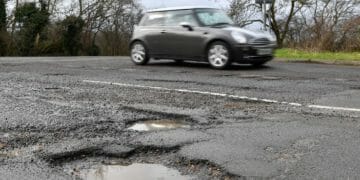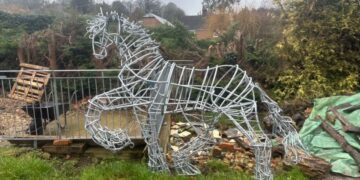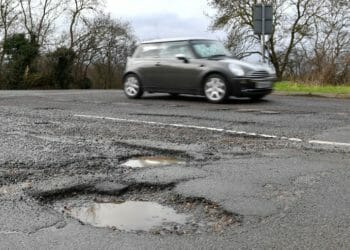
Alston’s ambulance crew are simply “heroes” to a man who required blue light assistance seven times last year.
Roger Harrison, 61, who has lived on Alston Moor with his wife, Ann, for 20 years, has heart problems and fears for the future should North West Ambulance Service (NWAS) go ahead with its plan to scrap the area’s dedicated ambulance service.
He said: “It is so reassuring as a patient to know that a local ambulance will be at my property or just at the end of my lane in 10 minutes instead of waiting for two hours or two-and-a-half hours for that ambulance to come from Penrith or Carlisle.
“I really feel for the elderly, people who are having strokes or heart attacks, those people unfortunately will die if they take that local service away from us.”
He added that the Alston crew deserve a huge amount of thanks for all the lifesaving work they do.
“They are heroes,” he said.
Mrs Harrison, who retired from the NHS a couple of years ago, said she had had 33 years of experience working on the frontline, as a registered nurse and a registered midwife.
She has also had to use the ambulance on four occasions.
“We have both got unpredictable heart conditions so at any point we could just need to call an ambulance for the chest pain and problems with the heart,” she said.
Like many people in the area, they live off the main road in Alston so access down their track can be an issue.
“We have discussed with the local ambulance how to access our property, and I am sure they have done this with other properties as well. They know the local area, they know where to go, and they know how to get there,” said Mrs Harrison.
Ann said although the emergency medical technicians that man the local ambulance are not trained to degree level — which paramedics are — which NWAS says is necessary, this argument does not hold up, because all care in the NHS is not provided by staff educated to degree level.
“You’re getting care from a consultant cardiologist who is obviously degree level.

“You are also getting care from a registered nurse who may or may not be degree level — so a lot of care is given at a non-degree level by health care assistants,” she said.
“The argument has to be, what is better? No care for two and half hours (while waiting for a regular ambulance to arrive) or care by people who are absolutely dedicated and who are as experienced as they can possibly be and are willing to put themselves into that situation.”
She added: “People will die and people will die in awful circumstances while they are waiting for somebody with a degree to turn up.”
In her view it is crucial for the Moor to have its own ambulance as it is such an isolated community.
Mr Harrison added: “If it is money that they need to get these paramedics trained up, then there is a lot of people on the Moor who will be able to fundraise and do that.
“If those paramedics wanted to be trained and could be trained, I personally would like to see that done,” he said.
More than 1,400 people have signed a petition calling on NWAS to reverse its decision to remove Alston Moor’s ambulance after almost 50 years.
Due to national changes regarding the skill level and training legally required for emergency medical technicians (EMTs), NWAS says it has “no choice”, but to modify the operational model for the Alston area.































